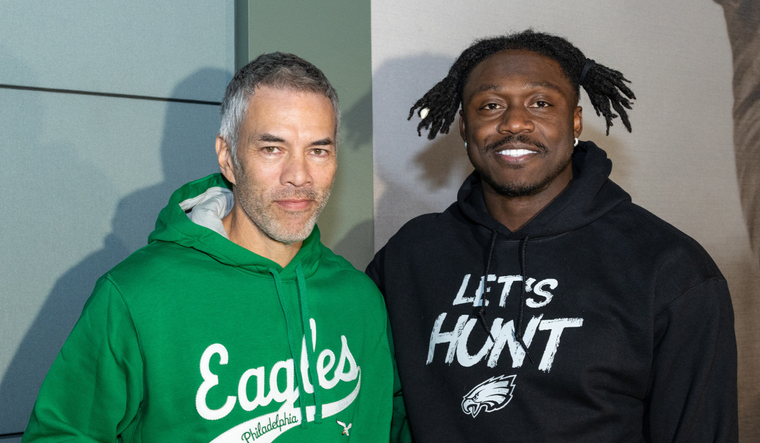From Crippling Anxiety and Depression to Joy, Gratitude, and Purpose: "Shazam!" Star and author of "Radical Love", Zachary Levi on the Transformative Power of Therapy
Taking care of your mind should be no more embarrassing than taking care of your teeth. We all need to be proactive—to brush and floss, our minds to root out the lies we tell ourselves and the bad programming that drives so much of our behavior. We don’t. We do the opposite. We pretend and project out to the world that “I’m great!” and “We’re great!” and “Everything’s fine!” But it’s not always fine, and because we refuse to admit that, we do nothing, and all of a sudden what started out as a little cavity is now in need of a root canal.
Having come through to the other side of intensive therapy, I now know how important and necessary therapy is. We get so wrapped up in our own narratives, the stories we tell ourselves about ourselves, that we can’t see any truth other than the twisted one we’ve constructed to justify what we do. Those narratives might be debilitating because they’re unfairly negative, like when we tell ourselves that we’re stupid or worthless or unworthy of love. Or they might be debilitating because they’re positive to the point of being delusional or narcissistic, like believing that we’re always right about everything because we’re smarter than everyone else.
Whatever our individual issues are, we all have bad programming that day by day is crippling us, but even as it’s crippling us it’s also comforting us through its familiarity. We retreat to it and take refuge in it. We avoid anything that challenges it, because it’s the only defense mechanism we know.
So we avoid therapists. We avoid them precisely because they’re going to do what we’re scared to do: dismantle the defense mechanisms we’ve come to rely on. Because a therapist is, or should be, an objective third party with no investment in maintaining the lies and stories we prop ourselves up with. And when we share our stories with a therapist, it’s like exposing them to sunlight or holding them up to a mirror. We can start to see our bad programming for what it is, and the lies that we tell ourselves about ourselves will, hopefully, begin to crumble and turn to dust.
Opening up to friends and family doesn’t accomplish the same goal. Friends and family are a wonderful, necessary place to start. We absolutely should open up to them and admit we need help. But our friends and family are not objective, disinterested third parties. They have their own agendas, misperceptions, and biases. People in my life have never known how to counsel me. To start with, my friends didn’t live my childhood, so how could they possibly understand the trauma I’ve gone through? Second, I had always been a stubborn person who didn’t think I had that many problems to begin with. And finally, on most days, regardless of what was going on inside me, I projected the image of someone who’s chipper and upbeat.
That situation was further complicated by the fact that so many of my friends and family members worked for me and were dependent on me financially. I had massive trust issues because of that. I could never be sure if the advice they were giving me was in my best interest, or theirs.
Merely talking to God doesn’t cut it either. Prayer is a wonderful thing, and it has given me solace on countless occasions, but it is not a substitute for therapy. If your head’s not right, and if you don’t see reality the way that reality actually is, then prayer alone isn’t going to help you see it. Prayer offers a time to reflect, to look inward, to be present with God. But prayer doesn’t hold up a cold, unflinching mirror to your life the way therapy does. Therapy breaks down our defenses and exposes us so that we can finally begin to understand ourselves and build ourselves back up. No matter how healthy we think we are, we all need it.
Reprinted from Radical Love: Learning to Accept Yourself and Others by Zachary Levi with permission from Harper Horizon.
Plus, check out the brand new trailer from Zachary's upcoming Shazam! Fury of the Gods below:
Please note that we may receive affiliate commissions from the sales of linked products.



